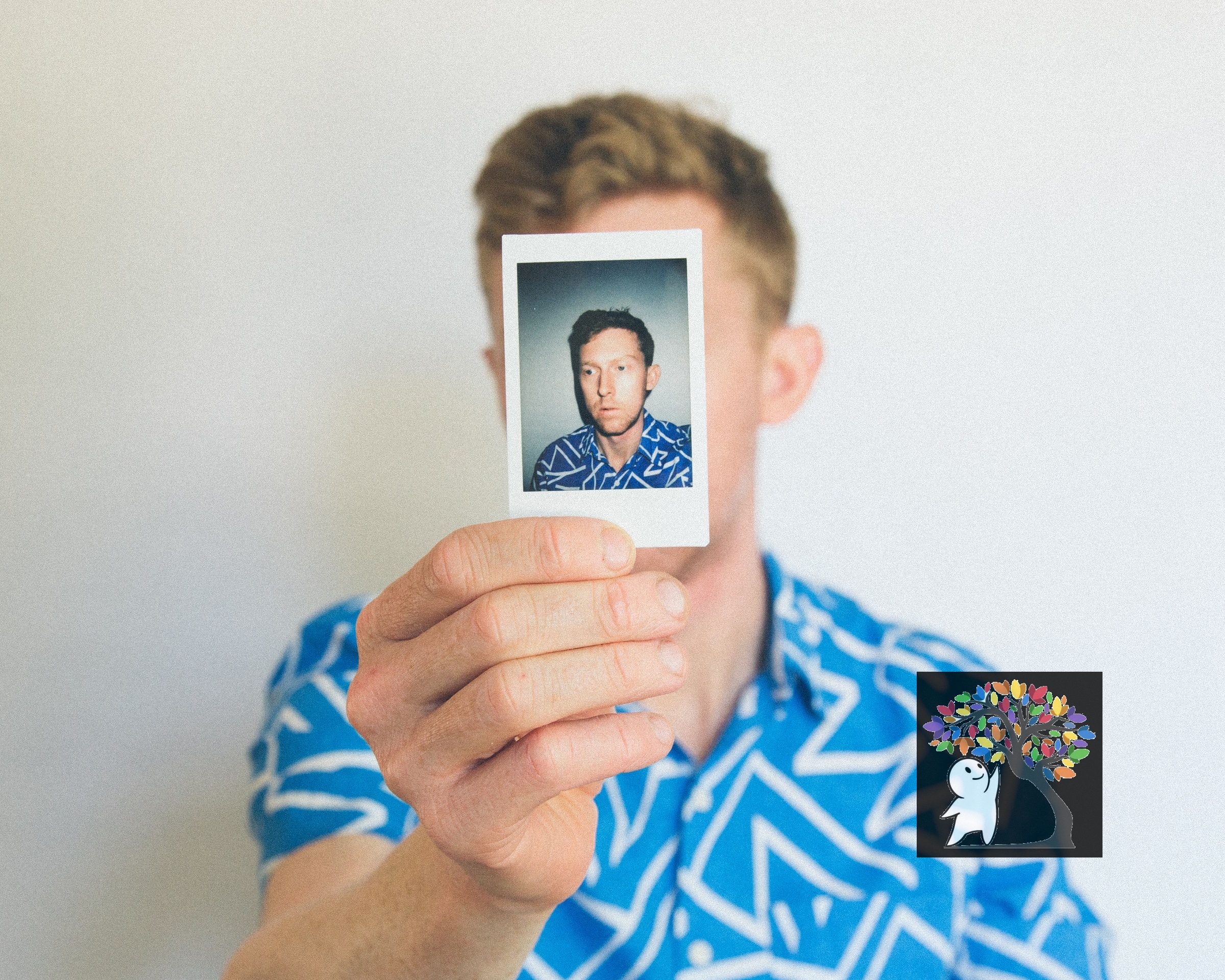10 Signs You Lack Self-Awareness

Have you ever heard the term metacognition? Essentially, metacognition is a higher form of thinking that measures intelligence and the ability to think about how we think. This is also what separates us from other animal species. Metacognition is in our genetics and has evolved by being passed down from human to human (Heyes et al, 2020). But not all aspects of metacognition come from our genetic makeup — research suggests that metacognition also develops in the culture we grow up in (Heyes et al, 2020). And with daily worries filling our minds, many of us don’t often think about how we think. With that being said, here are 10 signs you lack self-awareness:
1: You Have Trouble Understanding Your Emotions
The American Psychological Association (APA) defines emotional intelligence as “the ability to process emotional information and use it in reasoning.” Part of emotional intelligence is being able to name and regulate your emotions (APA). Research has shown that emotional intelligence and self-awareness may be linked. In a 2015 study in New Zealand, people who were given self-awareness training saw increases in their emotional intelligence (Gill et al, 2015). So, if you are prone to emotional outbursts or can’t describe what you’re feeling to other people, it may be a sign you lack self-awareness.

2: You Shut People Down When They Question Your Beliefs
Have you ever cut someone off before they even started making an argument for their opposing beliefs? Many people agree to disagree on politics and religion, but not hearing someone out may be a sign you lack self-awareness. According to a 2018 study published in Current Biology, people with radical political beliefs (at the far ends of the political spectrum) had lower levels of metacognition than their non-radical peers (Rollwage). Actively trying to understand people with different views causes us to think about why we believe what we do, which increases our self-awareness. Avoiding these conversations could mean that you lack the self-awareness to reflect critically on your beliefs.

3: You Make Excuses for Your Failures
Imagine this: you’re working on an important group project. You’ve convinced your group members to accept your idea, give you credit for it, and even make you group leader. Everything seems to be going well, and you tell everyone how proud you are of your group’s success. But you procrastinate on your part of the project until the night before you’re scheduled to present it, and realize you need a certain supply to finish. You rush out to buy it, but none of the stores have it in stock, and you have to give the presentation without it. Your presentation doesn’t go as well as you’d hoped, and you’re angry, but not at yourself for being ill-prepared. You’re angry that the store didn’t have your item in stock, and mad at your group members for not reminding you to pick it up sooner.
Crediting ourselves for our success (the group project idea) and others (the stores, the group members) for our failure is known as the self-serving bias (Duval, 2002). Of course, not everything is our fault. But people who lack self-awareness struggle to think critically about their strengths and weaknesses, and may find it difficult to tell the difference between mistakes they make and things that are outside of their control (Duval, 2002).

4: You Find it Difficult to Empathize With Others
Because empathy stems from using our own emotions and experiences to try to understand where others are coming from, it may be harder to feel empathy if you lack self-awareness. A 2018 study published in the Mindfulness journal found a connection between higher levels of self-awareness and empathy (MacDonald et al, 2017). The study also linked mindfulness practices like observation and non-judging exercises to increased self-awareness and empathy. This means that it might be possible to increase your self-awareness through mindfulness exercises.

5: You Can’t Explain the Reasons for Your Actions
If you struggle to find motives for your actions, you may lack self-awareness. Part of self-awareness is being able to analyze yourself from an outside perspective. Those with lower self-awareness don’t think about the reasons behind their actions and feelings as often as people who are more self-aware (Heyes et al, 2020). If you don’t have high levels of self-awareness, it may also be harder for you to find personal meaning in your actions (Dishon et al, 2017).

6: You Suppress Your Emotions
Sometimes it feels necessary to suppress, or hide, your emotions. You might tell yourself that now is not the time or place to deal with whatever emotion you’re feeling. But if you lack self-awareness, you may continue to suppress your emotions without realizing when you need to take time to feel and process them. Bottling up your emotions has been linked to serious negative psychological and even physical consequences, and might manifest in increased emotional intensity, stress, or symptoms of depression (Patel, 2019). Granted, you may recognize that you keep suppressing your emotions and still continue, but awareness is the first step to finding a healthy outlet for these emotions.

7: It’s Hard For You to Make Realistic Goals
A study published in the European Journal of Personality explored the relationship between self-awareness and the ability to identify obstacles that would prevent you from reaching your goals (Kreibich et al, 2020). In the study, people with high self-awareness were able to list more obstacles than those with low self-awareness. Those lacking in self-awareness might not have been able to identify as many obstacles because they overlooked their personal weaknesses. To achieve realistic goals, you must be honest with yourself about what you need to work on to accomplish them, and people who lack self-awareness won’t know their limitations as well as people who reflect on themselves often.

8: You Lack a Sense of Identity
Self-awareness is essentially getting to know yourself. If you lack self-awareness, you may feel unsure of your identity or try to reconcile it with the labels other people place on you. You might even feel like you are copying other people’s identities until you discover your own. Research suggests that people who are more self-aware are more likely to make choices that symbolically represent their identity (White et al, 2018). These symbols could be what you wear, what name you go by, or what you post on social media. People with higher levels of self-awareness actively work to present an image to others that is consistent with their internal identity (White et al, 2018). This is why a lack of self-awareness may be linked to feelings of uncertainty over your identity.

9: You Have Trouble Keeping Yourself On-Task
Studies have shown that our minds wander from our current tasks much more frequently than we realize (Adam & Vogel, 2017). If you keep getting off-task due to distracted thoughts, it may be a sign you lack self-awareness. People with high levels of self-awareness are better able to recognize when their minds are wondering and refocus their thoughts on the task at hand (Adam & Vogel, 2017). Of course, mental disorders like ADHD can also make it difficult to concentrate, so it’s important to consider the other signs as well.

10: You Struggle With Time Management and Self-Control
If you lack self-awareness, you may overestimate your abilities to manage your time and make decisions that will pay off in the long term. People with lower levels of self-awareness are more likely to make decisions that benefit them in the short-term, trusting that in the future they will be more responsible (O’Donoghue & Rabin, 2003). This misjudgment can lead to procrastination and poor decision-making skills. People with greater self-awareness often recognize their tendency to procrastinate and take action to prevent it, such as making strict self-deadlines (O’Donoghue & Rabin, 2003). If you lack self-awareness, you may blame external factors for taking up your time and stopping you from getting things done, instead of acknowledging your poor time management skills.
How self-aware are you? If you related to any of the signs on this list, you’re one step closer to becoming more self-aware because you were able to identify these qualities in yourself! It’s important to remember that you can improve your self-awareness with practice. Even people with high levels of self-awareness must keep reevaluating themselves every time they change. And while it can be hard to have honest conversations with yourself about your strengths and weaknesses, there are many benefits to becoming self-aware, some of which were covered in this article.
References:
- Adam, K.C.S., Vogel, E.K. (2017). Confident failures: Lapses of working memory reveal a metacognitive blind spot. Attention, Perception, & Psychophysics, 79, 1506–1523 https://doi.org/10.3758/s13414-017-1331-8.
- American Psychological Association (n.d.). Emotional intelligence. In APA Dictionary of Psychology. Retrieved 4 June from https://dictionary.apa.org/emotional-intelligence.
- Dishon, N., Oldmeadow, J. A., Critchley, C., & Kaufman, J. (2017). The effect of trait self-awareness, self-reflection, and perceptions of choice meaningfulness on indicators of social identity within a decision-making context. Frontiers in Psychology, 8, 2034. https://doi.org/10.3389/fpsyg.2017.02034.
- O’Donoghue, T. & Rabin, M. (2003). 7: Self-awareness and self-control. In Time and Decision: Economic and Psychological Perspectives of Intertemporal Choice. Loewenstein G., Read D., & Baumeister R. (Eds.), 217-244. Russell Sage Foundation. https://www.jstor.org/stable/10.7758/9781610443661.
- Duval, T. S., & Silvia, P. J. (2002). Self-awareness, probability of improvement, and the self-serving bias. Journal of Personality and Social Psychology, 82(1), 49–61. https://doi.org/10.1037/0022-3514.82.1.49.
- Gill, L. J., Ramsey, P. L., & Leberman, S. I. (2015). A systems approach to developing emotional intelligence using the self-awareness engine of growth model. Systemic Practice and Action Research, 28(6), 575–594. DOI: 10.1007/s11213-015-9345-4.
- Heyes, C., Bang, D., Shea, N. Frith, C.D., & Fleming, S.M (2020 May). Knowing ourselves together: The cultural origins of metacognition. Trends in Cognitive Sciences, 24(5), 349-362, https://doi.org/10.1016/j.tics.2020.02.007.
- Kreibich, A., Hennecke, M., Brandstätter, V. (2020 January). The effect of self‐awareness on the identification of goal‐related obstacles. European Journal of Personality. 34(2), 215-233. https://doi.org/10.1002/per.2234.
- Patel, J. & Patel, P. (2019). Consequences of repression of emotion: Physical health, mental health and general well being. International Journal of Psychotherapy Practice and Research, 1(3),16-21. DOI: 10.14302/issn.2574-612X.ijpr-18-2564.
- MacDonald, H.Z., Price, J.L. (2017). Emotional understanding: Examining alexithymia as a mediator of the relationship between mindfulness and empathy. Mindfulness 8, 1644–1652. https://doi.org/10.1007/s12671-017-0739-5.
- Rollwage, M., Raymond, J.D. & Fleming, S.M. (2018 December). Metacognitive failure as a feature of those holding radical beliefs. Current Biology, 28(24), 4014-4021. https://doi.org/10.1016/j.cub.2018.10.053.
- White, K., Stackhouse, M., & Argo, J. J. (2018). When social identity threat leads to the selection of identity-reinforcing options: The role of public self-awareness. Organizational Behavior and Human Decision Processes, 144, 60–73. https://doi.org/10.1016/j.obhdp.2017.09.007.




Responses